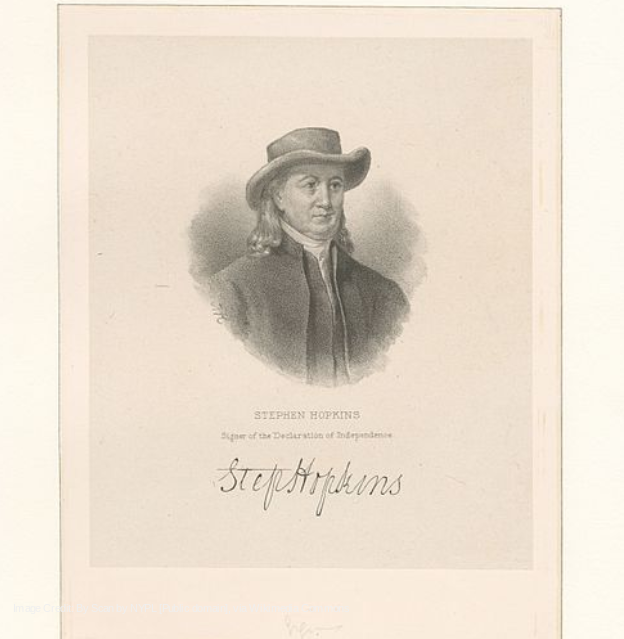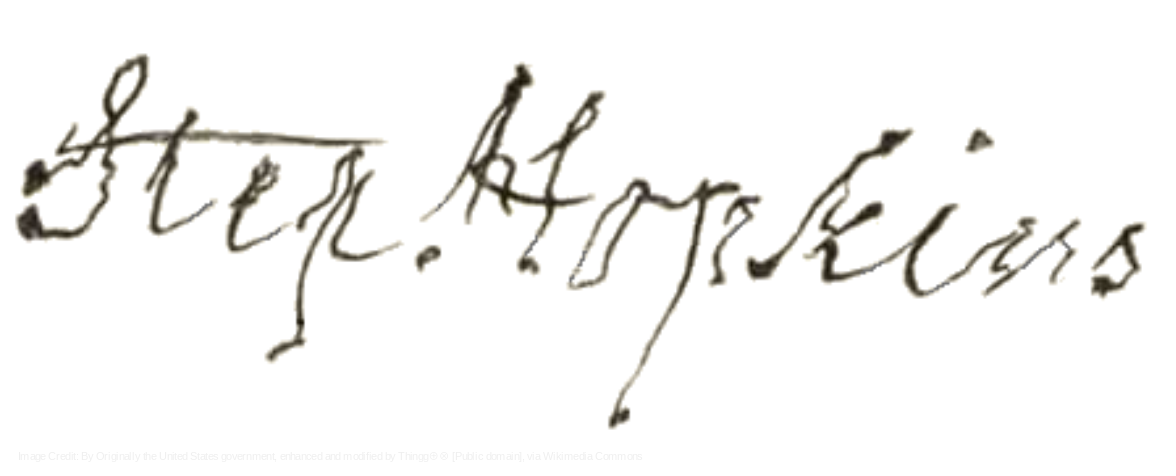Mark Cole
Born in 1707, Stephen Hopkins was a self-taught scholar, farmer, surveyor, businessman, and father of seven. He held the highest offices in each branch of the Rhode Island colonial government – the political triple crown so-to-speak: Speaker of the House of the Rhode Island colonial legislature, Chief Justice of Rhode Island, and Governor of Rhode Island.
In his spare time, he was a member of the American Philosophical Society (founded by Franklin, and later headed by Jefferson) and founder of the public library in Providence.
Like many (though far from all) of America’s founding fathers, he was an early proponent of the abolition of slavery. He was the author of the Rhode Island law which freed slaves, one of the first such laws in America.
By the 1770’s, Hopkins had already had a long and distinguished career. But when called upon, he gladly geared up for one last battle. He was elected to the Continental Congress and was almost seventy when the rebels met in Philadelphia. Perhaps Hopkins took some comfort in the fact that Benjamin Franklin was older still.
At his advanced age, Hopkins was not in perfect health. For years prior to 1776, he had relied on others to do his handwriting because of a degenerative disease which caused his hands to shake mercilessly.
But when it came time to sign the Declaration of Independence, Hopkins went at it alone. His signature is erratic and wavy.
Rest assured it was not fear that caused his hand to waver. Rather, it was his supreme courage which caused him put his trembling hand to paper and make his pledge to fight to death for independence, if need be. This was no job for an amanuensis.
Hopkins – the old lion – signed for himself.
For more awesome stories about the Signers –
Check out Mark’s book:
Lives, Fortunes, Sacred Honor: The Men Who Signed the Declaration of Independence















